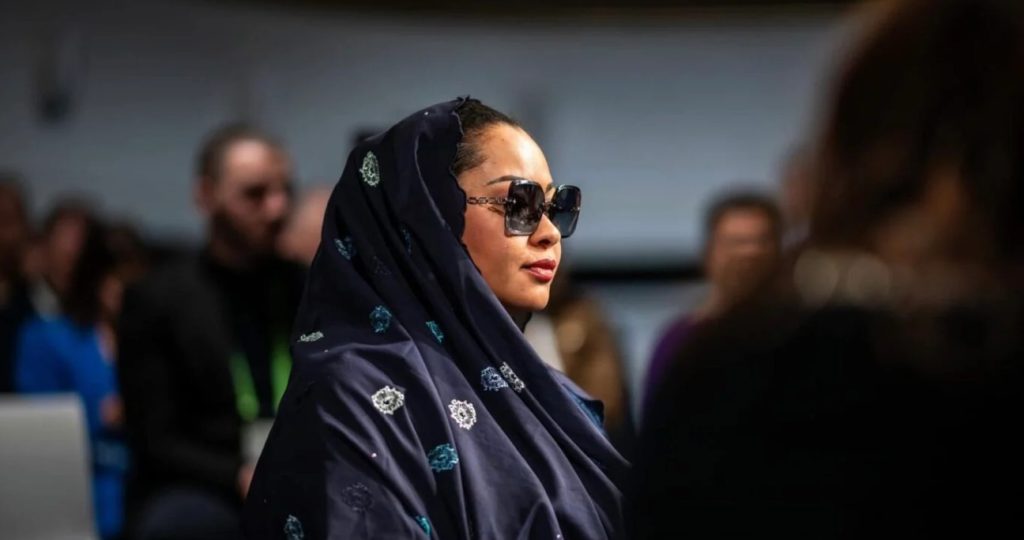Senator Natasha Akpoti-Uduaghan, representing Kogi Central, has launched a forceful legal challenge against the Federal Government, accusing it of political persecution and double standards over the criminal defamation charges filed against her by the Attorney General of the Federation (AGF).
In a preliminary objection filed on Monday before both the Federal High Court and the High Court of the Federal Capital Territory, Akpoti-Uduaghan asked the courts to dismiss the six-count charge, describing it as unconstitutional, malicious, and an abuse of prosecutorial power.
Her legal team, led by four senior advocates of Nigeria, including Prof. Roland Otaru (SAN), Dr. E. West-Idahosa (SAN), J.J. Usman (SAN), and M.J. Numa (SAN), argued that the defamation case is civil in nature and should not be criminalised under the guise of cybercrime.
“This is a private dispute dressed up as a federal offence. The charges are frivolous, unconstitutional, and meant to silence an opposition voice,” her lawyers stated.
Disputed charges
The defamation charges, filed under the Cybercrimes (Prohibition, Prevention, etc.) (Amendment) Act, 2024, stem from statements Akpoti-Uduaghan allegedly made on April 4, 2025, during a public gathering and a television interview. In those comments, she accused Senate President Godswill Akpabio of directing former Kogi Governor Yahaya Bello to assassinate her.
Prosecutors claim the remarks were false, malicious, and capable of inciting unrest, endangering lives, and disrupting public order.
Akpoti-Uduaghan pleaded not guilty at her June 20 arraignment and was granted bail on self-recognition.
Allegations of double standard
In her objection, Akpoti-Uduaghan noted that while the Federal Government acted swiftly on Akpabio’s petition, it ignored her earlier petitions alleging threats to her life by the same individuals.
“This is selective justice. I filed petitions against Akpabio and Yahaya Bello, but the authorities refused to act. Now, I am being prosecuted on their complaints. This is discrimination under Section 42 of the Constitution,” she said.
Her defence maintains that the charges reflect an attempt to weaponise the justice system against political opponents, and warned that the case could set a dangerous precedent for free speech and media commentary.
Broader gender discrimination claims
The development also coincides with fresh international attention on Akpoti-Uduaghan’s prolonged suspension from the Senate, which a Federal High Court ruled unconstitutional in July 2025.
A coalition of over 350 women’s rights organisations, under the Womanifesto Network, submitted a formal complaint to the United Nations Special Rapporteur on Violence Against Women and Girls, accusing the Senate of gender-based discrimination.
“This is about the integrity of our democracy,” said Dr. Abiola Akiyode-Afolabi, the group’s convener. “If a female senator can be silenced for speaking up, what hope is there for ordinary women?”
Signatories to the petition include Amnesty International Nigeria, FIDA Nigeria, Baobab for Women’s Human Rights, WIMBIZ, and Stand to End Rape (STER). The group urged the UN to pressure the Nigerian Senate to comply with court rulings and reinstate Akpoti-Uduaghan immediately, while initiating an independent probe into her harassment claims.
Background
Senator Akpoti-Uduaghan was suspended on March 6, 2025, following her February 20 public allegations that Akpabio harassed her. The Senate Ethics and Privileges Committee recommended a six-month suspension, citing breaches of parliamentary decorum.
The suspension stripped her of access to her office, salary, and security—a move widely condemned by civil society as punitive and unconstitutional.
Despite a July 4 court ruling invalidating her suspension, the Senate has refused to comply, claiming the judgment lacked a direct reinstatement order and was still subject to legal interpretation.
Her criminal case has now been adjourned to October 20, pending the outcome of her jurisdictional objection.



